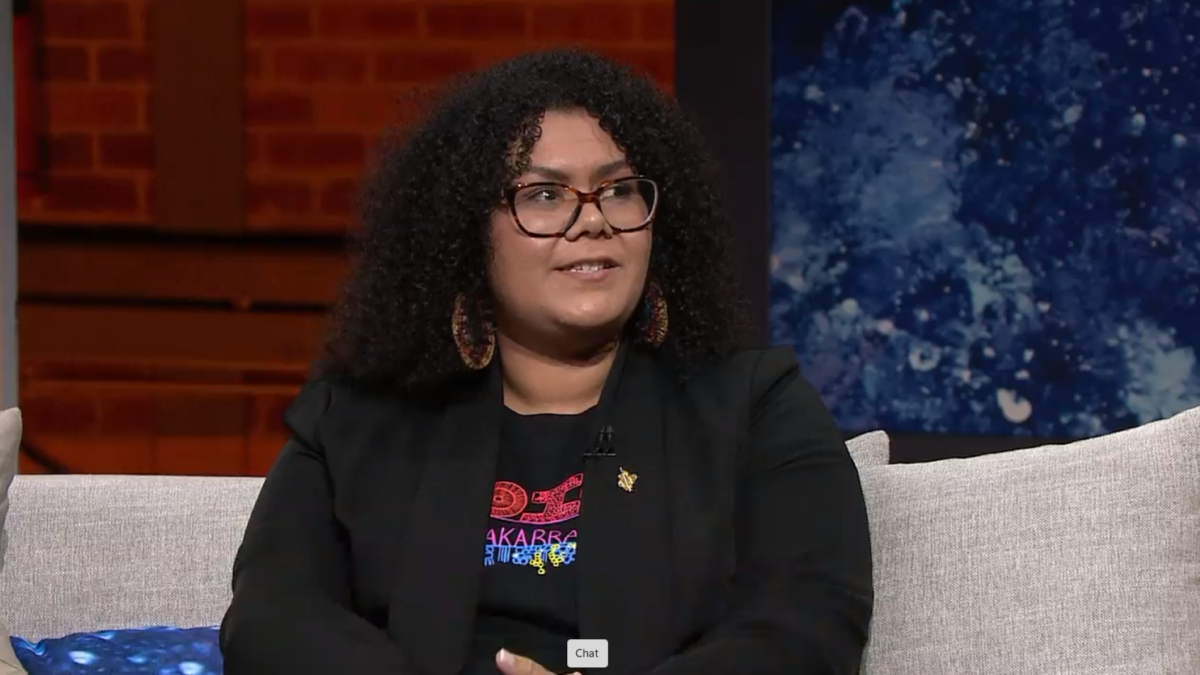Yes campaign youth leader urges Aussies to arm themselves with the facts ahead of Voice referendum


Uluru Youth Dialogue Co-Chair Bridget Cama appeared on NITV's The Point, calling on Australians to educate themselves ahead of the upcoming referendum. (Image still from The Point).
A KEY CAMPAIGNER for the proposed First Nations Voice to parliament has urged Australians to educate themselves ahead of the Constitutional Referendum, widely expected to be held in October.
Wiradjuri woman and Co-Chair of The Uluru Youth Dialogue, Bridget Cama said it is up to Australians to decide for themselves which way they vote in a few months’ time, not politicians, who at times have taken the focus of the debate away from the central issue, that being First Nations people having a say on matters which affect them disproportionately to non-Indigenous Australians.
“The whole reason the Uluru Statement from the Heart was issued to the Australian people was to give power back to the people to have a say on whether they want First Nations people to have that voice or not,” Ms Cama told NITV’s The Point program on Tuesday night, when asked by co-host John Paul Janke of her thoughts on how the debate was playing out in her eyes.
“We're seeing a lot of politicising of the issue, obviously heading into a referendum. Some of the misinformation and disinformation, deliberate mis-truths which are out there are really disappointing, to say the least,” she said.
“We expect that, especially from the politicians who are putting those mis-truths out there, that this debate take place based on facts. A key part of The Uluru Dialogue and the campaign that we're working on is the education part of that. Education is key to this, so that Australians can make an informed decision, whatever that may be.
“When I'm on the ground, I'm not hearing a lot of that negative stuff that is being shared around on social media, for example.
“In communities, people are thirsty for information. They want to know what the Voice is, what it's about and where the Voice actually came from – that being the Uluru Statement from the Heart. So that's my experience and I would just encourage Australians to seek out that factual information so that you can make an informed decision when it comes time to vote.”
An over-arching theme of the episode was education and the vital part it plays in building strong First Nations communities. Ms Cama said culture is integral to feeling part of any school or institution for First Nations people.
“It doesn't matter what level of education or what institution, but most importantly, those programs and services have to be informed by the community; that’s the key to their success,” she said.
“We’re seeing little pockets of that right around the country, where those services or programs are leaps and bounds in front of the expectation, because they are community-led, because the people within the community know what works best and they know the solutions.
“But it actually takes the partnering organisation or school to come to the table as well. My question is, well, why isn't that a requirement? Why isn't that a standard requirement, when we know that is what works?”
